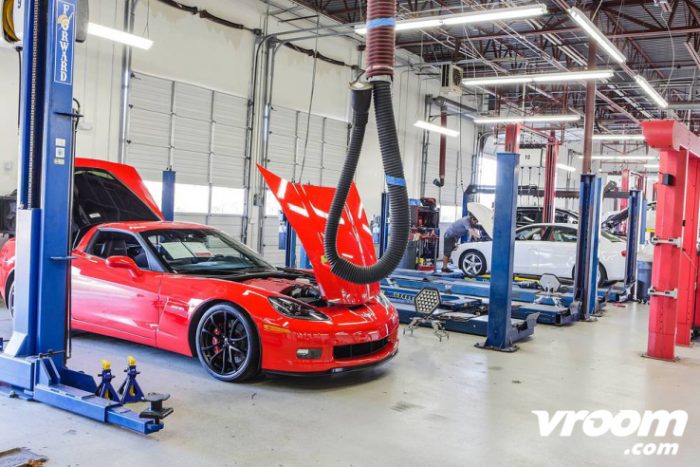Now Reading: When Used Is The Better Option
-
01
When Used Is The Better Option
When Used Is The Better Option

You need a new car but do you need a car that’s new? You might already know that buying a car that’s even a year old can drastically reduce the costs of buying it. A lot of people buy used to get the car they might not usually get to afford or because they need something that’s not going to need quite as much maintenance. When you’re going used, make sure you’re not paying new prices with the tips above.
When it’s still good
The problem with used cars is inherent. They are pre owned so they have some use on them. The more used they are, the lower the price is. However, different cars deal with different degrees of use a lot better than others. If you want a used car but one that isn’t going to quickly show its age, look at the brands with a reputation for being reliable like Honda. Honda Civics and Accords constantly win rewards for needing fewer trips to the garage and less money spent on maintenance, as well as just living longer than the rest.
The right time of year
When it comes buying a car, timing actually has a lot to do with how much power you’re able to have over the salesperson. For instance, when a new sales quarter begins, salespeople are still far from their quota, so they have more freedom to throw unreasonable prices at you. On the other hand, getting at when demand is low, such as in the middle of a weekday, makes them more inclined to close whatever deal they can.
When to bother with insurance
How much auto insurance do you need? It’s a question that depends largely on the car you’re getting. If you’re aiming for cheap and cheerful, then you might not necessarily want insurance to cover repairs when you’re more likely to just move onto a new car. Similarly, if it’s a car that has little risk of ever getting stolen, then comprehensive cover might just be a waste.
Getting the deal you deserve
Even when buying used cars, it’s a good idea to have your loan sorted before you step into the dealership. Not only because you know how much money you have to play with. Used car loans for older cars have lower interest rates than general car loans. You can get a better deal by being specific with loan providers about the fact you plan on going used.
Be prepared to haggle
There’s also a lot more room for negotiation with a used car. New cars have a recommended price that makes dealerships more likely to stick to the upper limit of that range. With used cars, you can get a much better deal with some slick negotiation. After all, many of them are willing to take less profit on the front-end of selling the car for more than they bought it if they believe they can make more money on the back-end by selling things like extended warranties and financing. You can play it savvy and show an interest in such extras to get a lower price front-up. You don’t necessarily have to follow up on that interest.
Used cars aren’t necessarily always going to be cheap. It’s all about the deal you strike, the choice of car, and the costs you can expect to come with it. Factor all the points above in before jumping into any agreements.
Stay Informed With the Latest & Most Important News
Previous Post
Next Post
-
 01Polestar Boss Says It’s Time To Outrun BMW M And Mercedes-AMG
01Polestar Boss Says It’s Time To Outrun BMW M And Mercedes-AMG -
 02Spy Shots: 2027 Mitsubishi Pajero Spotted in Testing Ahead of Possible U.S. Return
02Spy Shots: 2027 Mitsubishi Pajero Spotted in Testing Ahead of Possible U.S. Return -
 032026 Toyota Hilux EV: A Powerful Truck with Silent Torque
032026 Toyota Hilux EV: A Powerful Truck with Silent Torque -
![2027 Mercedes-Benz S-Class Debuts with V8 Engine [Photo Gallery]](https://speedlux.com/wp-content/uploads/2026/01/2027-Mercedes-Benz-S-Class-33-155x125.jpg) 042027 Mercedes-Benz S-Class Debuts with V8 Engine [Photo Gallery]
042027 Mercedes-Benz S-Class Debuts with V8 Engine [Photo Gallery] -
 05Spy Photos: VW ID. Polo GTI Goes Electric with 223 HP and 280 Miles of Range
05Spy Photos: VW ID. Polo GTI Goes Electric with 223 HP and 280 Miles of Range -
 062026 Corvette ZR1 Production Surges Past Expectations as Output Clears 1,000 Units
062026 Corvette ZR1 Production Surges Past Expectations as Output Clears 1,000 Units -
 07Hyundai Palisade’s Breakout Year Shows How Quickly the Market Can Turn
07Hyundai Palisade’s Breakout Year Shows How Quickly the Market Can Turn



![2027 Mercedes-Benz S-Class Debuts with V8 Engine [Photo Gallery]](https://speedlux.com/wp-content/uploads/2026/01/2027-Mercedes-Benz-S-Class-33-700x394.jpg)











































